Traditionally, ETU has offered duathlon racing over the Sprint, Standard and Long Distances. Our on-going cooperation with IPA (Powerman) has worked well and the oft-repeated, “Are you tough enough” is a test that many take when they make their Duathlon Pilgrimage to a small town in Switzerland in September. The Duathlon circuit is growing and with the announcement from ITU this month that from 1st January, 2017 ITU Powerman Long Distance Triathlon Points Lists will be used to determine the best performing Long Distance Duathlon athletes, based upon results from Duathlon World Championships, Duathlon Continental Championships, Duathlon World Series and Duathlon National Championships, we can expect the sport to grow. Check out the news on Page 134 of the new Rules, Appendix E22
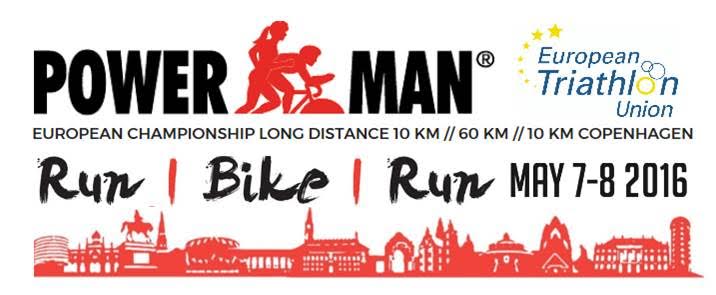
This year the Long Distance Championships moved to Denmark and to the capital, Copenhagen. Athletes raced the 10k, 60k, 10k course in glorious weather. The youngest category to win medals was the 18-19 year-olds. Only amongst the men did we see athletes start.
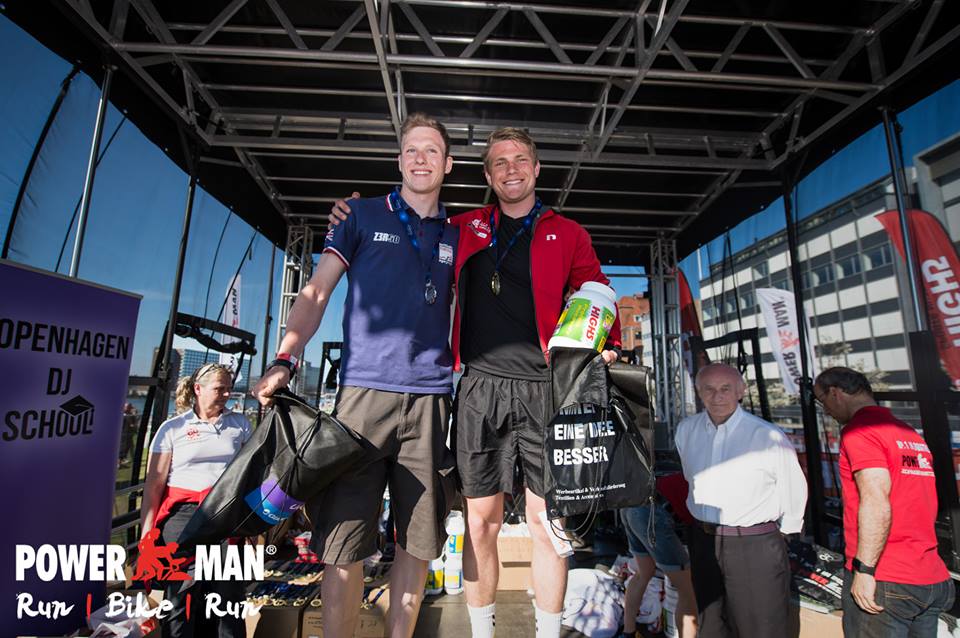
Gold went to a delighted Daniel Paulsen and gave the host nation a reason to cheer loudly. New to the circuit and hopefully a name we will see in the future, he beat British athlete John Micklethwaite, who has so far stayed in the Sprint and Standard distance events.
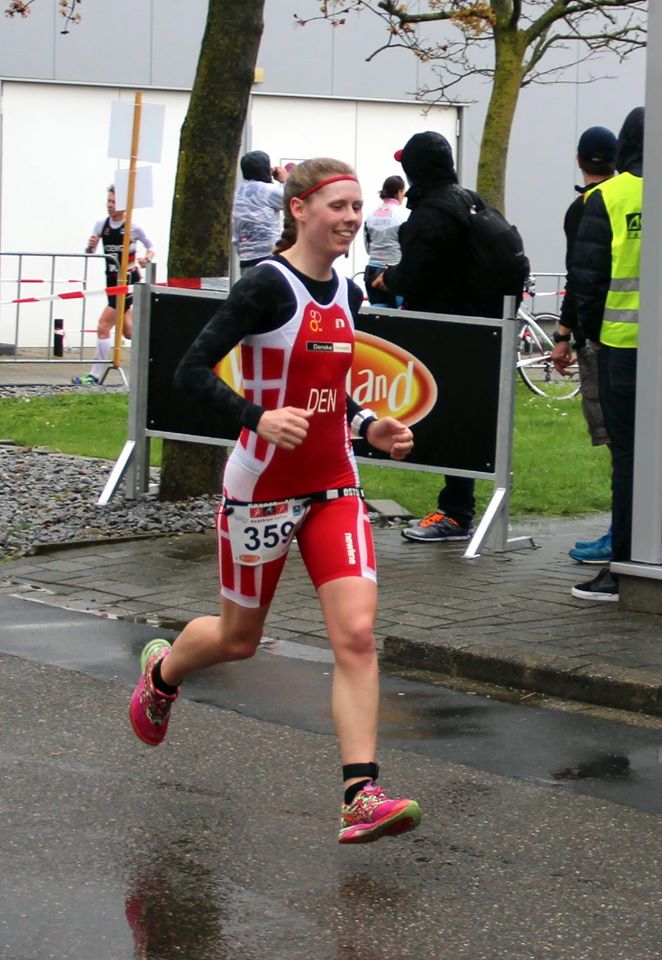
In the women’s 20-24 category, Denmark again won gold with a stunning race from Kalkar gold medal-winner Ann Kathrin Scholtyssek DEN. She went on to Snowy Mountains and secured a top 5 finish. Watch out for this exciting athlete. Silver went to Sweden’s Tanya Karlsson.
For the men, the Danish run of medals was halted by Sören Otten. He went on to win in Zofingen and clearly the longer distances suit him. Silver went to Denmark’s Kristoffer Visti Graae and with a World silver from Adelaide over the shorter distance, it was GB’s Daniel Bluff who took bronze.
25-29 saw a runaway grab of gold and silver by two British athletes. It was victory for Dionne Allen who showed a clean pair of heels to defending champion, Rosie Davies. Having edged ahead on the first run, Allen took her time in T1 but then put in a powerful ride to enable her to cruise a bit in the final 10k and the gold ahead of Davies but it was Davies who marked the end to 2016 with a gold in Zofingen at the Big One. Behind by over 11 minutes came Elisabeth Nilssen NOR.
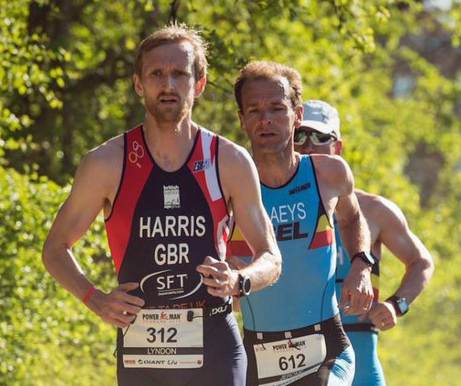
For the men, some fast running from Lyndon Harris saw him enter T1 with a commanding lead. A superfast transition was not followed by enough pace on the bike and he was caught by first Jonas Vandevyvere BEL and then Sweden’s David Ny.
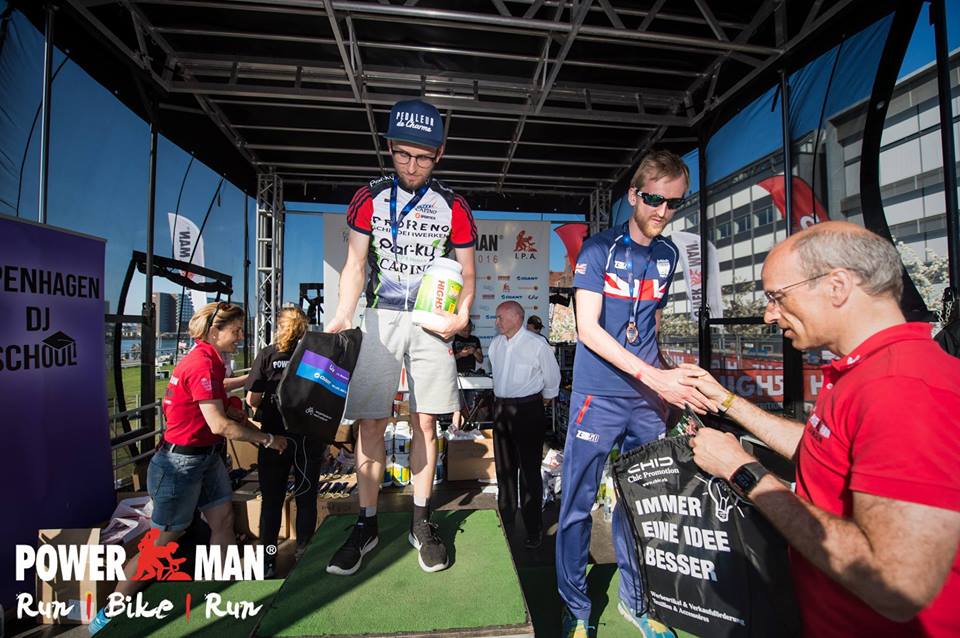
These three athletes forged ahead and soon had the podium sorted. Harris had pace on the run but had lost too much time on the bike and it was the Belgian whose powerful riding, who took gold ahead of Ny. Vandevyvere went on to Zofingen to take silver.
In the next category, 30-34, it was gold to Britain’s Eilidh Yates.
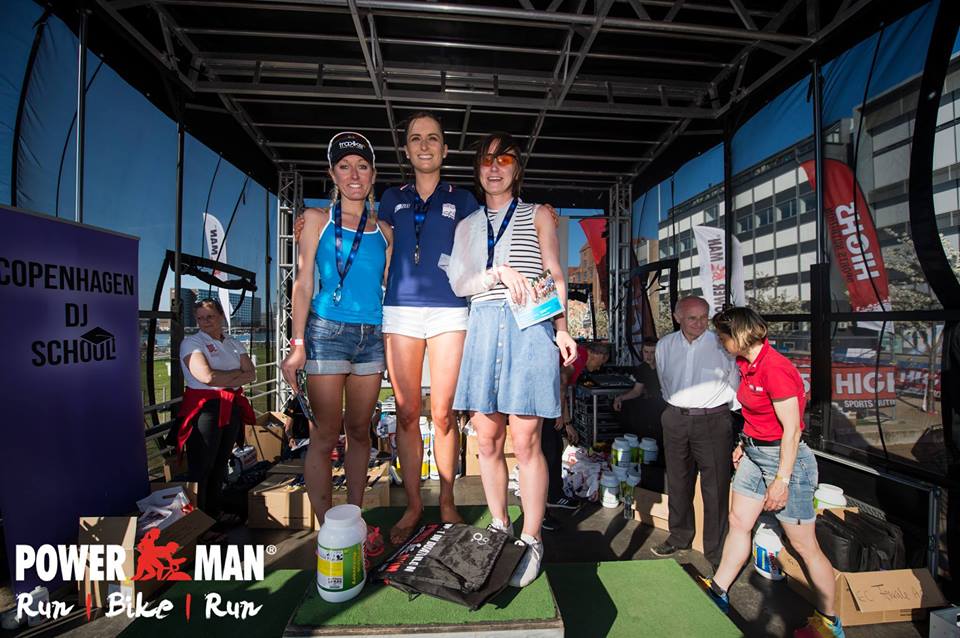
She followed Belgian Virginie Soenen into T1 but then turned the tables on the Zofingen winner from 2015 with some powerful riding and a faster final 10k. Kirsty Anderson GBR came home for the bronze, which was her second bronze in 12 months after the ETU Middle Distance race in Rimini last year. The men who filled the podium also managed to create some distance between themselves and the chasing athletes. It was Chris Kilburn who popped in a 34:44 for the first 10k. Behind him came Spaniard, Tanausú Castellano and from Norway Trond Atle Smedsrud. Kilburn kept the pressure up on the bike and was able to ease off a little in the final 10k to take gold ahead of the Norwegian. Bronze went to Spain.
35-39 saw Denmark back on the podium with Signe Køngerskov taking command.
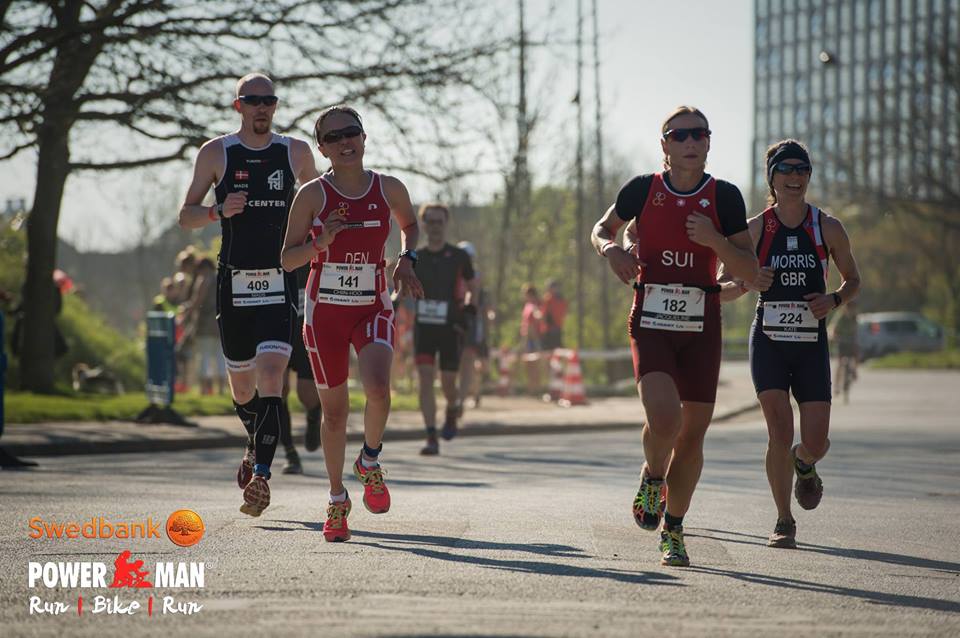
She finished comfortably ahead of Louise Harris GBR, whose bike power was enough to hold off Denmark’s Chiin Hooi Tan. The 2014 title holder from Weyer, Christian Tortorolo AUT was a clear winner for the men. His victory of almost 11 minutes is witness to his run and bike power. Behind him came double-bronze winner from Zofingen, Switzerland’s Sebastian Bräuer. He was able to hold off the fast finishing Belgian, Didier Deveirman who rounded off the podium.
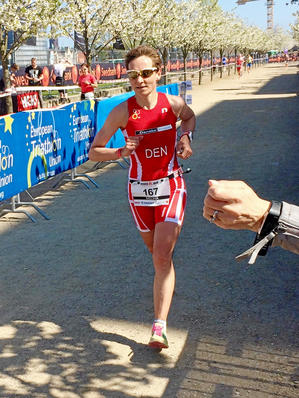
More medals came to Denmark in the Women’s 40-44 category. Melina Olsen came to this race as defending champion. Her race in Horst was a convincing victory. Her race in Zofingen was a convincing victory and once again here in Copenhagen she blew the field apart. Oh, and in September, once more in Zofingen, she dominated. World and European titles are added to her national title. Watch this athlete. She is stunning. Behind her came Jacqueline Uebelhart SUI in the silver medal position and in third was fellow Dane, Helene Lykkegaard, who went on to secure a top ten in Walchsee.
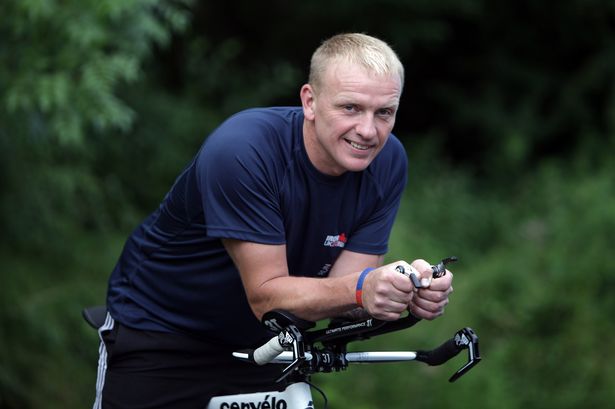
It was a close call for Britain’s Hedley Fletcher. A top ten place in Horst last year was enough to motivate him and in Copenhagen it all came together to take him to the top of the podium ahead of two Danes.
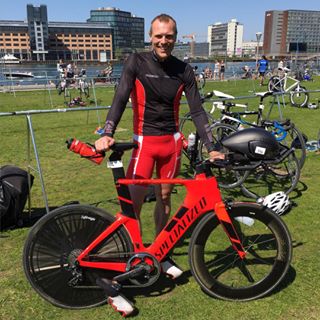
Silver went to the more powerful cyclist and Olympic medal-winning rower, Eskild Ebbesen who had done enough on the 60k to keep ahead of Søren Kirketofte, who had won silver in Kalkar.
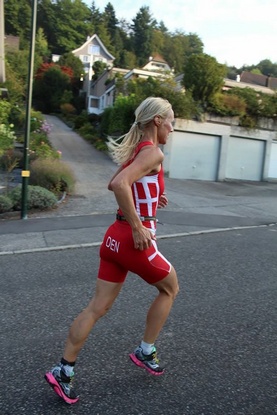
45-49 and Denmark had a chance to really cheer on their race favourite. Annette Corydon was the 2015 Danish long distance duathlon champion and topped that year with a victory in Zofingen. She was race favourite and from the start she was in the lead. She added a World title in Aviles and then once more the big one in Zofingen. Amazing racing. She had to wait ten minutes until the silver medal-winner crossed the line. That medal went to GB’s Deborah Comer, who has jumped up from her 4th place in the Alcobendas Sprint to this testing longer distance.
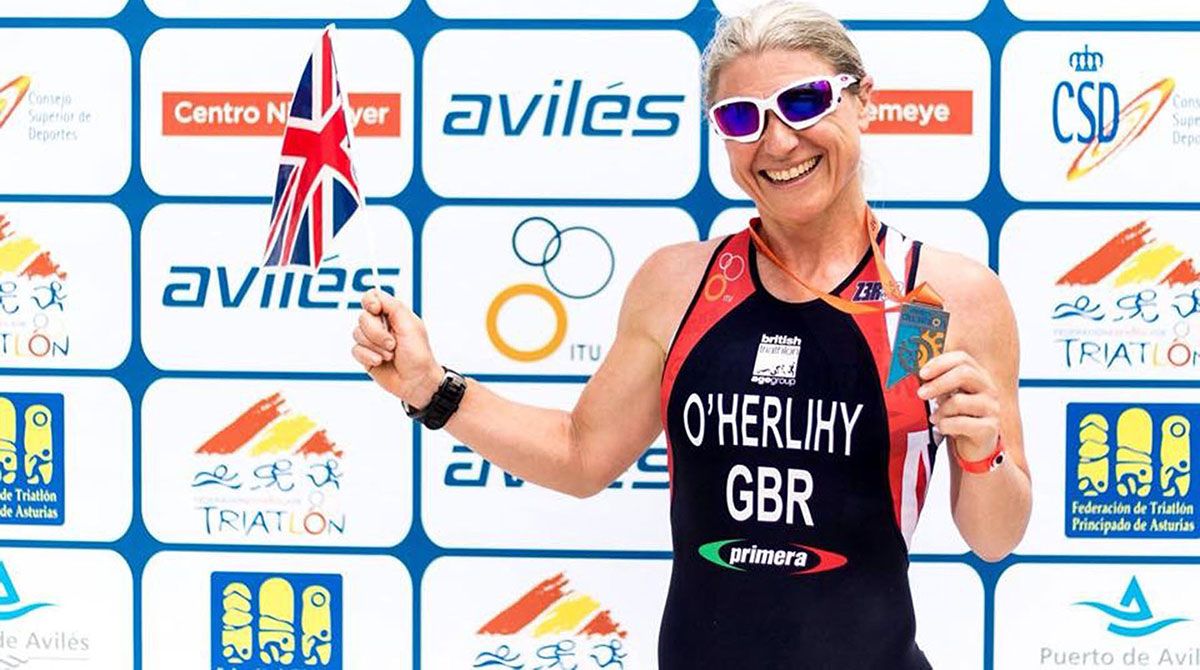
She was ahead of teammate, Louella O’Herlihy, who won silver in Kalkar.
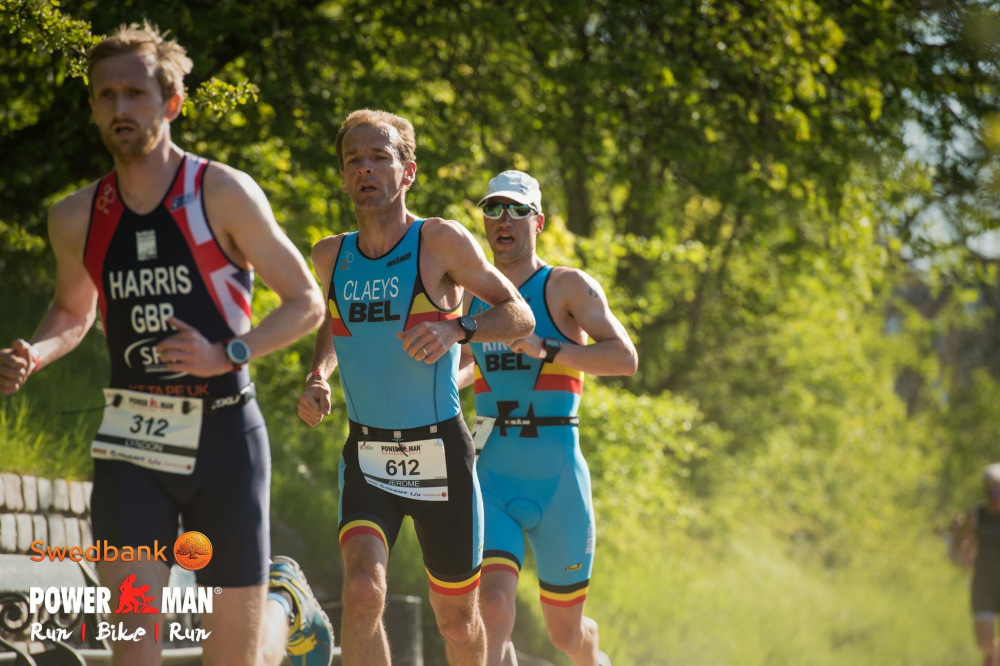
For the men, it was the 2015 Adelaide World Champion who dominated the race. Jerome Claeys had a poor race in Kalkar as an Elite athlete and wisely chose to stick to Age Group racing, going on to win in Aviles in June. He did not lead the race until the final 10k, which he ran at 33:24 pace to outrun everyone else. Long distance specialist, Carl Brümmer SWE, won the world title in Motala but was outraced in Copenhagen. He had done enough to keep the fast-finishing Brit, Chris Nicoll back in bronze place. Nicoll had silver in Adelaide behind Claeys and went on to race Aviles where once again in 2016 he was rewarded with a bronze medal.
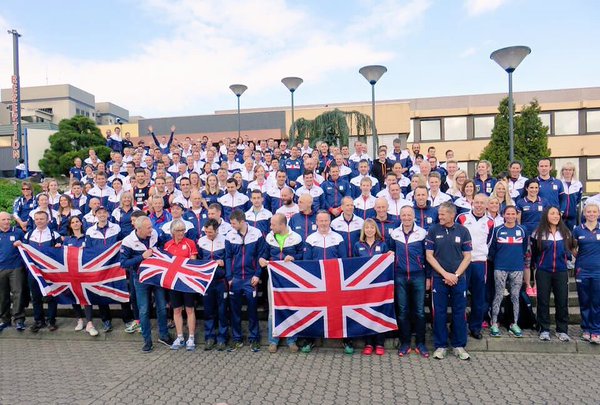
Team GB has been used this year as an example to all Federations. If you want your Age Group athletes to race in big numbers then you need to support them. There is a massive, but self-funded, machine that brings the Brits abroad, “to Europe” as many will say. It is a chance to travel. A chance to be a team and as we see again and again, a chance to win medals, impress your friends and family and to generate significant local and national reports in the media.
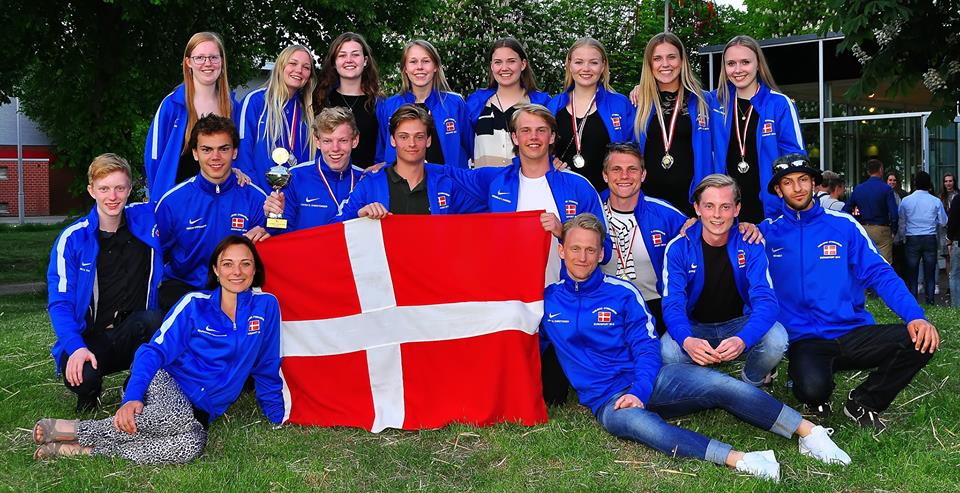
The “Team Photo” is a great memory.
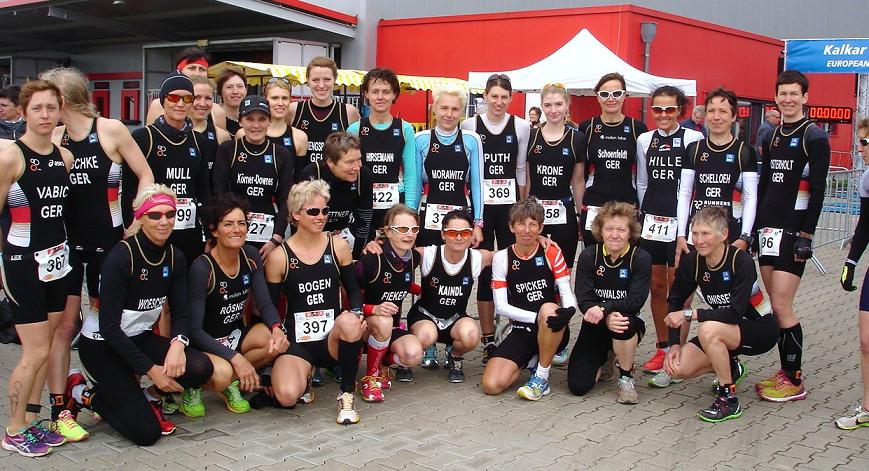
Let’s see more photos like this.
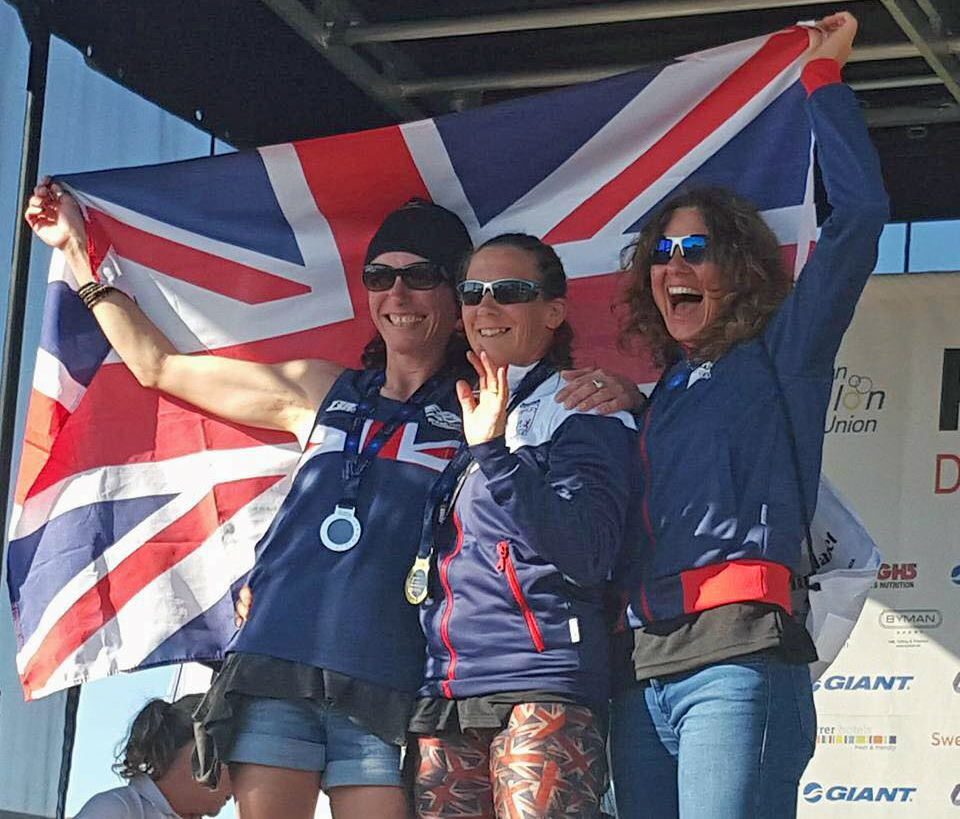
In the next category, 50-54, it was a clean sweep of gold, silver and bronze for the Brits. Gill Fullen came as the 2015 World Champion and has been on the podium for each of her ten international appearances. She led the race and was on the finish line to cheer on her teammates. Kate Morris took silver, having won gold in Kalkar and Vikki Sivertsen won bronze but then went to Zofingen where she became World Champion with a winning margin of over 54 minutes!
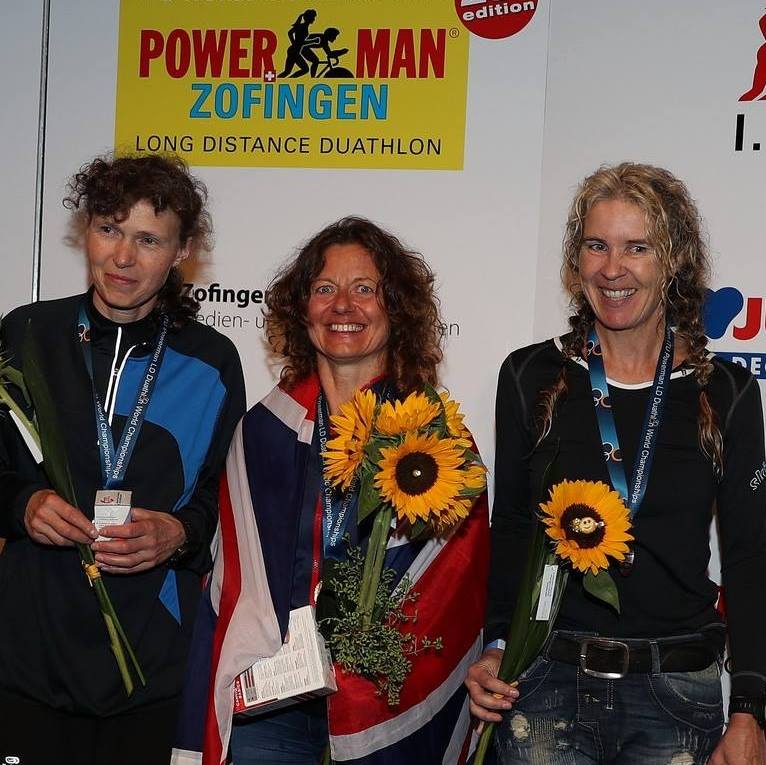
Fast running from Paul Rogers GBR saw him enter T1 ahead of the chasing athletes.
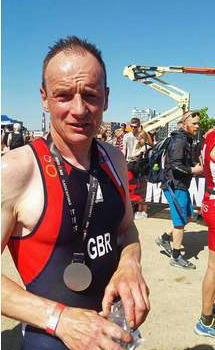
A regular racer on the European and World circuit and with ETU and ITU medals in his collection, he was unable to keep the lead and, after losing valuable seconds in T1 he was soon caught on the bike. Fast riding from Thomas Heider GER and silver medallist from Horst in 2015, Jens Oluf Eriksen DEN, saw his lead disappear.
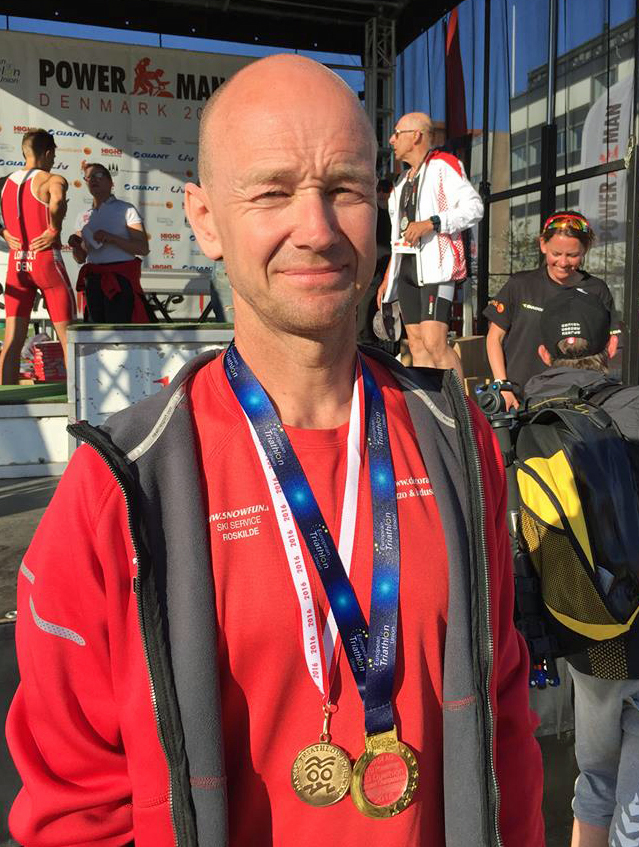
The final 10k time of 37:22 saw gold go to the Dane and silver to Germany. Rogers held on for bronze. Eriksen went to Zofingen where he improved on his previous 4th place with a commanding victory to claim the World title by a twelve-minute margin.
Denmark continued on its medal run in the 55-59 Women’s race. Last seen in 2012 when she had a top ten finish in Vitoria-Gasteiz, it was Else Grønkjær-Bloch who won by over ten minutes.
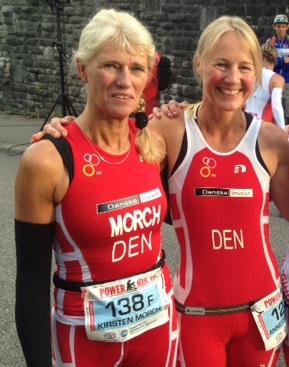
Silver went to fellow Dane, Kirsten Mørch who went on to win in Zofingen in September, where she celebrated her 35 minute victory along with the other successful Danes. It appears that Denmark has the monopoly on long distance duathletes!
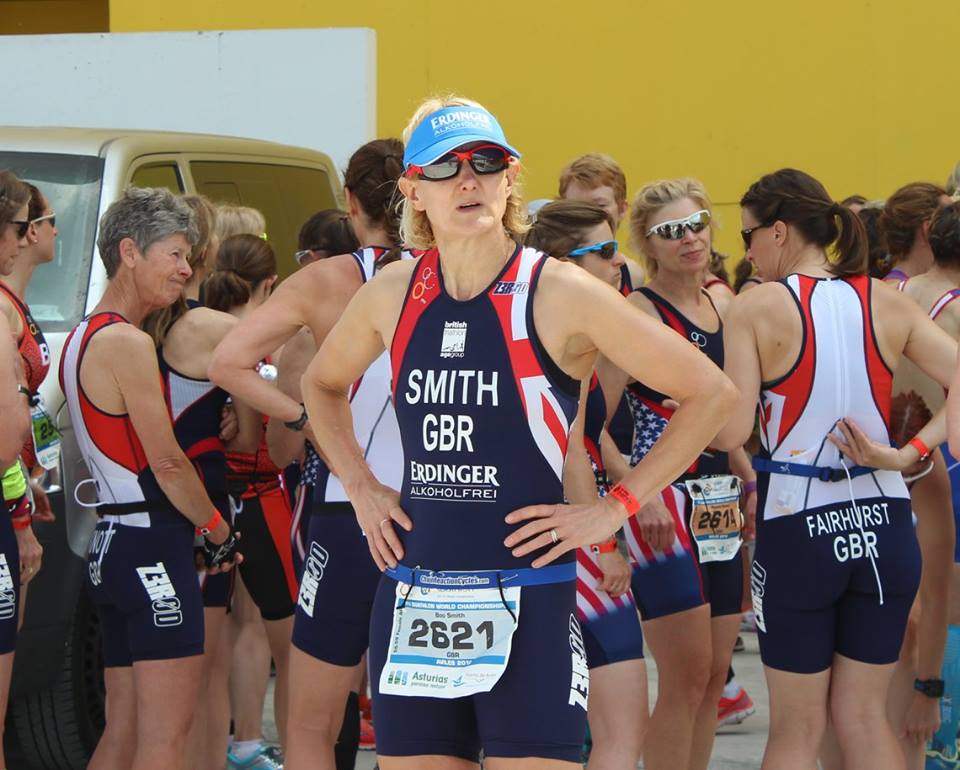
Bronze went to Boo Smith GBR who later had a top ten finish in Aviles. Smith’s finish in Copenhagen was at sprint pace but despite a superior run she missed out by just two seconds on the silver.
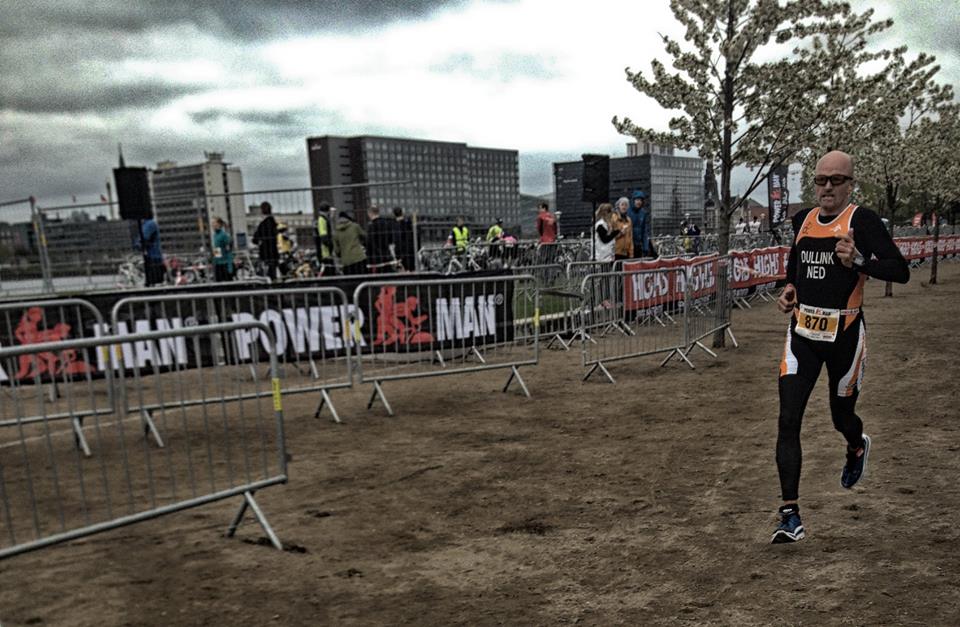
There is a photographer in the Netherlands who takes great photos of Age Group athletes. He takes these photos once he has finished racing and, as he is pretty fast, he tends to win. In fact, his four international starts have seen him on the podium four times and, yes, you have guessed it, he won gold each time. Henry Dullink won gold and the title in Weyer, Horst and in Copenhagen. He then went on to add the World title in Aviles. Moving up from his sprint victory in Kalkar, Aeneas Appius SUI won silver ahead of Britain’s Peter Hollins, who favours duathlon but still posted a top ten finish in Walchsee.
Vibeke Hansen DEN, won the women’s 60-64 category to add to her 2007 gold in the Copenhagen ETU Triathlon European Championships. One more athlete we would like to see race further afield. Breaking three hours and securing another gold for Denmark, it was Karsten Olsen who led from the start. 9 races, 7 podiums and three golds. His ability to mix off-road racing with traditional courses is mightily impressive. Silver also went to Denmark. Birger Frederiksen was World Long Distance champion in 2011 as a duathlete. In 2012 he was European triathlon champion in Eilat and here in Copenhagen on home soil he was once more on the podium. Bronze went to Germany and to Zofingen silver medallist in 2015, Bernd Hauser.
65-69 saw Britain’s Eleanor Robinson win the battle and improve upon her Kalkar bronze. She outraced Denmark’s Gertie Jensen who first stood on the podium in 2007, when in Copenhagen she won European silver. In 2009 it was a Holten bronze and now, back on home soil it is once more a silver. 20 minutes is a comfortable winning margin. This is exactly what Mogens Busk Sorensen DEN achieved. His last venture onto the international stage was “down under” in Newcastle in 2005 when he won silver. Fellow Dane, Sven-Erik Andersen had a ten minute lead over Great Britain’s Peter Jagan who went on later in the year to a top ten place in Walchsee. Jagan had the 2015 title over the sprint distance in Alcobendas but has clearly shown an ability to race Duathlon, Triathlon and Aquathlon. A great supporter of the sport.
Moving now into the 70+ categories and it was one of the most respected and well-travelled British athletes who won gold. Peggy Crome has been on the podium now 16 times and of these appearances, 8 times she has won gold. She has raced all over the world and is always in a positive mood. Her first medal came in 2005. A European bronze in Lausanne. Golds followed in Vancouver, Gold Coast, Athlone, Eilat, London and Kitzbühel. For the men, it was gold to Sweden, as Åke Jonson took the title ahead of Denmark’s Jørgen Ladegaard. Ladegaard went on to win in Zofingen. Bronze went to Heinz Bauer GER who had previously been the World Champion in 2011 in Zofingen and a silver medallist there in 2012.
There was no representation in the 75-79 category but Britain’s Kevin Robinson, long time organiser of the Duathlon League in the UK, was winner in the 80-84 category.
Our Age Group athletes are the backbone of our sport. Without them the races simply would not happen and it is nice to see so many of them getting involved with a variety of the events that are offered under the ETU flag. Let’s make a resolution for 2017 - if you are at a race, take some time to get some really good photos of the athletes racing in the older categories.
2017 is upon us and with the race calendar rapidly filling up, we are all looking forwards to seeing them race next year.

